Michael Arloski
Self-Disclosure in Coaching – When Sharing Helps and Hinders.

We’re working with our coaching client and something they bring up reminds us of a relevant experience in our own lives. We feel empathy, we can relate. Do we share about our own experience with the client? Self-disclosure is a powerful part of human communication and a conscious technique that has been studied in therapy, counseling and coaching since the…
Seven Expressions Of Courageous Coaching
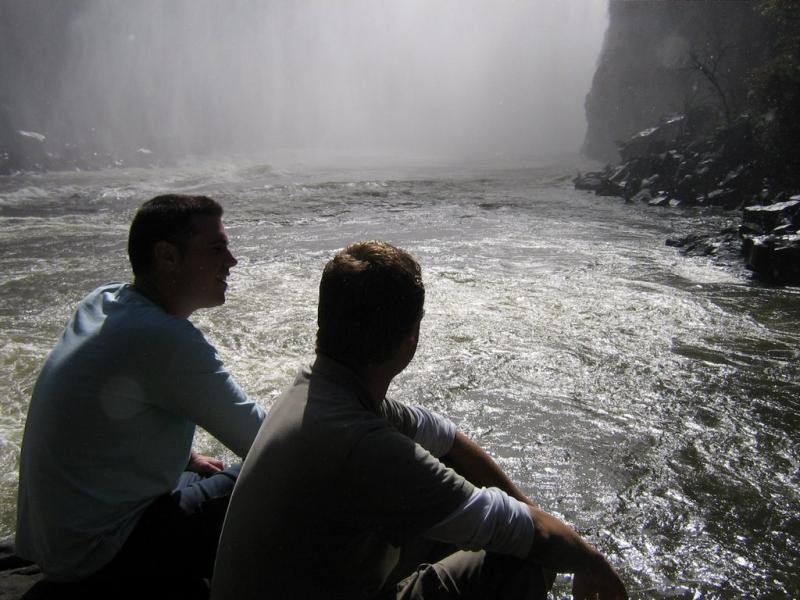
Courageous coaching! What would “courageous coaching” look like for you? There are many ways to approach the subject of courage in coaching. As a trainer of wellness & health coaches here are some of the ways I would like to see courage show up for the coaches we educate.
1. The Courage To Stand For NCRW- Naturally Creative, Resourceful…
Social Distancing – Not Social Isolation: Coaching for Connectedness in the age of COVID-19

We all still need each other. Even in the age of COVID-19, our health continues to depend upon healthy supportive relationships. Real Balance https://realbalance.com has always stressed what we call Coaching for Connectedness. We‘ve seen lifestyle improvement occur and last more often when people receive support for the changes they are making to live healthier lives. When a…
Stress Coaching Part I: A False Sense Of Urgency

How often do you find yourself and others around you at work and at home operating on a false sense of urgency? How often do we take action before we have all the facts, or make a decision just to relieve our anxiety? See if this sounds familiar? On Thursday, a deadline is set for Friday for a report nobody…
Stress Coaching Part II – Recovery From Stress

What we refer to as “stress” is quite a mystery. Ill-defined by most everyone except psychological researchers, we ascribe devastating levels of power to it, and often feel helpless to cope with it. We know that stress is linked to worsening health, greater risk of illness and the exacerbation of most any condition we find ourselves with.
Wellness and…
Structure Is The Wellness Coach’s Friend: Seven Ways To Coach Better
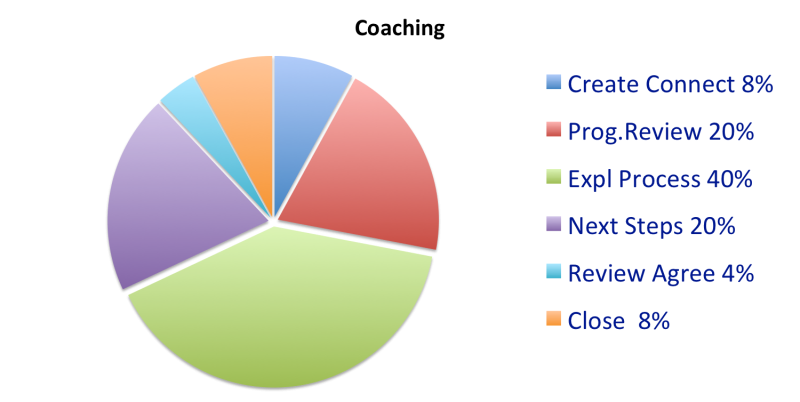
Great coaching finds a balance between structure and spontaneity, customization, “dancing in the moment” and organization. While some large coaching organizations err on the side of too much structure, using scripts and ridged protocols, some coaches “wing it” way too much. Listening to hundreds of coaching recordings, done with real clients, I’m continually amazed at how loosely many coaches go…
Structuring Great Wellness Coaching Sessions – Part 2 Process and Progress
Though every coaching session is unique, coaching sessions that follow a general structure are usually more productive. In our last blog post we showed how a coach can use structure by Co-Creating The Agenda for the session to get off to a great start.
In that beginning structure we followed this basic sequence:
• Greet and Connect. Small…
Structuring Great Wellness Coaching Sessions – Part 3 Accountability and Support

This is the third of a three-part series on Coaching Structure. In our first blog we showed how a coach can use structure by Co-Creating The Agenda for the session to get off to a great start. In our second blog – Structuring Great Wellness Coaching Sessions – Part 2 Process and Progress we explored how effective processing leads to…
Ten Steps To Forward The Action In Your Life

In the coaching process we listen, clarify and help our clients explore their lives, taking stock of their current life situation and health status. Eventually we have to go beyond our basic listening skills, summarizing and helping our client get very clear about where they currently are. At that point we help them get clear about what they are ready…
Ten Steps To Structuring Great Wellness Coaching Sessions
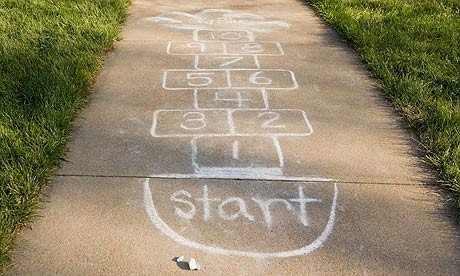
Wellness coaching clients show up for appointments desiring to make progress in improving their lifestyles and thereby improving their lives. For as much as they want the session to be productive, it is easy for the client and the coach to drift together from topic to topic and finish up realizing that little has been accomplished. Sometimes a client comes…
Ten Ways To Coach Through Barriers To Change – Part One – Outer Barriers To Lifestyle Improvement by Dr. Michael Arloski.

A key part of effective coaching is helping our clients to find a way over, under, around and through the barriers that get between them and their goals. The best-laid wellness plans are inevitably challenged by some combination of “life getting in the way”, lack of environmental support, or sometimes even the “push-back” resistance from peers.
The other side…
Ten Ways To Coach Through Barriers To Change – Part Two – Inner Barriers To Lifestyle Improvement – II by Dr. Michael Arloski.

6. Practice Extreme Self-Care
Many times coaches and clients co-create a wonderful set of self-care action steps that the client knows will help them to be healthier and well. Then, on the next coaching appointment, the client confesses that they held back from doing almost all of the actions agreed upon. The coaching conversation then reveals that the client…
The Best Coaching Question

The Best Coaching Question
As a guest on Mike Vera’s Podcast Healthy & Awake (https://mikevera.com/healthy-%26-awake-podcast) I was surprised to be asked “What’s your favorite question to use in coaching?” For a brief moment I was puzzled by the question, then I immediately said
“What are you aware of right now?”
…
The Bigger Mindset Shift: Waking Up To Lasting Lifestyle Improvement

Just back from a whirlwind of professional travel, I’m struck by a pervasive awakening that our health is largely behavioral, and if we truly want to improve health worldwide, we must seek methods that support success at lasting lifestyle improvement. At the Lifestyle Medicine 2015 Conference http://lifestylemedicine2015.org, where I presented, we saw that the medical profession is embracing wellness…
The Bonus Benefits Of Exercise

Harvard’s School of Public Health (http://www.hsph.harvard.edu/nutritionsource/staying-active-full-story/) is quick to tell of all the prevention advantages of exercise. We know that getting more movement and exercise into our lives can help prevent the onset of heart disease, diabetes, certain cancers, high blood pressure, metabolic syndrome and osteoporosis. Exercise can be vital to positively affect the course of these illnesses…
The Challenge of Being Well And Being Male

Living a healthy lifestyle presents challenges for everyone, but what are men, in particular, up against when it comes to being well? Stereotypes aside, let’s look at what we know about men’s health during Men's Health Week 2020.
In January 2012 a Centers for Disease Control and Prevention (CDC) report, published in the Journal of the American Medical…
The Fine Art of Coaching Questions – Part One
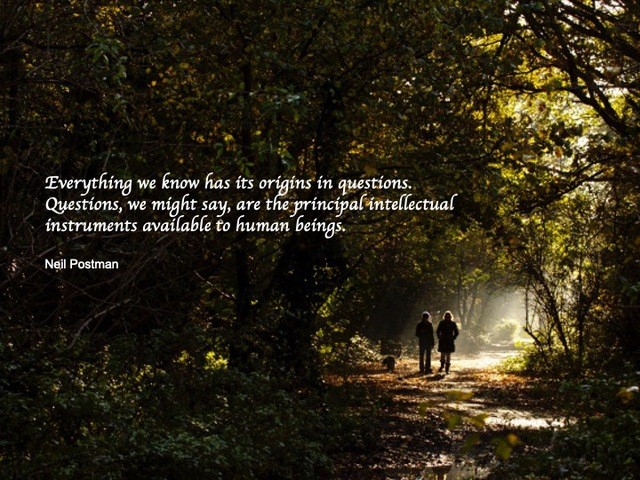
The Fine Art of Coaching Questions – Part On
Everything we know has its origins in questions. Questions, we might say, are the principal intellectual instruments available to human beings.
Neil Postman
Questions, like Postman says, are instruments to understanding. Perhaps they are our principal instruments, but they are not our only ones. We also…
The Great Utility of Coaching In The Emotional Realm

According to Plato: Human behavior flows from three main sources: desire, emotion, and knowledge.
Coaches often cautiously retreat from the affective level with their clients for fear of crossing the line into therapy. Other coaches with a professional mental health background are comfortable going in this direction, but don’t often know how to shift from a therapeutic approach to…
The Health And Wellness Coach’s Value Proposition
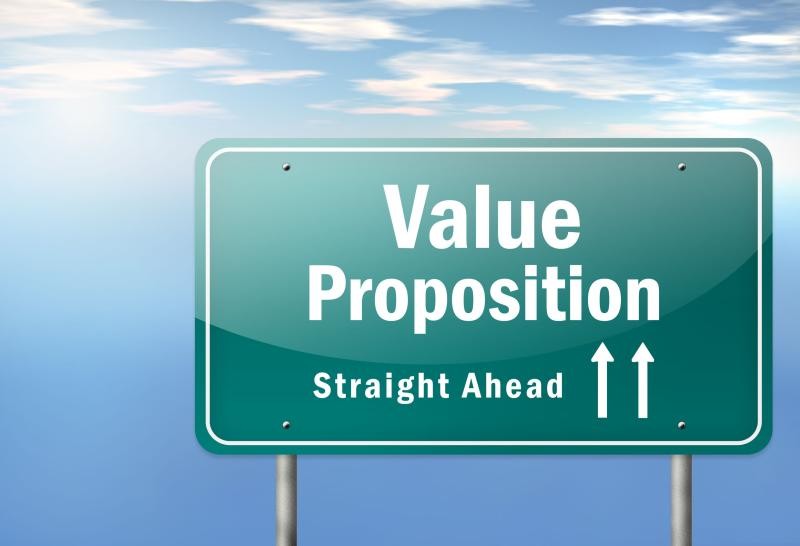
Every potential coaching client is looking to have the question ‘What’s in it for me?’ answered. Every coach needs to be able to succinctly answer that question by conveying what they will provide for their client.
Potential coaching clients are rarely familiar with what a coach, especially a health & wellness coach, can do for them. They are used…
The Language of Effective Coaching Accountability

While mentoring a coach along the path towards her ACC (Associate Certified Coach through the ICF – International Coaching Federation - http://coachfederation.org) I observed her repeated hesitancy in using accountability in her coaching. As we explored this I found that in her coach training she had been exposed to a style of enforcing accountability instead of co-creating accountability…







